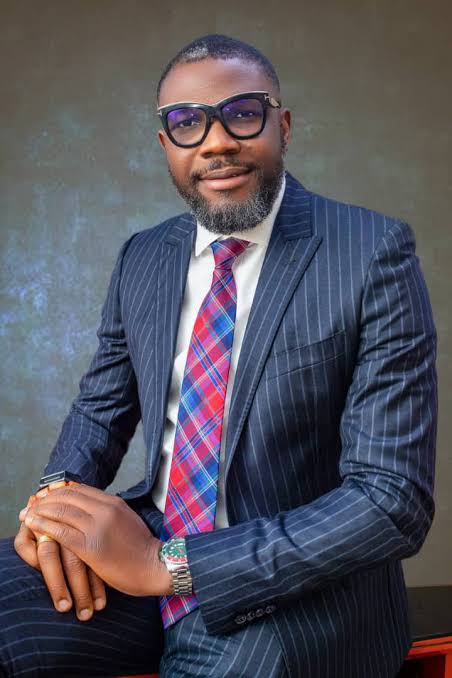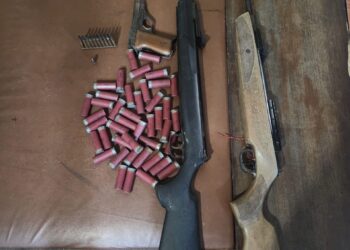In this interview with our correspondent; Oluyinka Onigbinde, the President of Shipowners Association of Nigeria (SOAN); Mr Sonny Eja speaks on the critical needs of the maritime sector in 2025. Eja emphasizes the urgent need for more collaboration between government agencies and industry players, calls for the full automation of ports, and stresses the importance of tax relief and rebates for shipowners to ease operational challenges. He dwells on other sundry issues as well.

I will like to get your perspective from the shipping angle. What should be done in 2025? What should be achieved in the industry?
What I would say first and foremost is that we would like to see and have more engagement and collaboration with major stakeholders. And by stakeholders, I mean the likes of the Ministry of Marine and Blue Economy, which, of course, oversees both the Nigerian Ports Authority and the Nigerian Maritime Administration and Safety Agency. We would like to see more collaboration with these government agencies, as they are critical to the sector. Also, we must begin to harness the blue economy, which is widely seen as a game changer for the country. There has been very little movement in this regard. The truth is, this sector has the potential to drive economic growth, create jobs, and foster innovation.
Whether we like it or not, the maritime industry is a massive one. During my inaugural speech as President of SOAN, I mentioned that the sector is estimated to be worth around $296 billion. This is an industry that can support nearly 50 million jobs in the country. So, we cannot overemphasize its importance.
Now, speaking about NIMASA, we need to revisit the ship registry. Just recently, when we met with the Permanent Secretary of the Marine and Blue Economy Ministry, we made it clear that the registry needs to be revisited. And by that, I mean that a lot of the processes should be automated. I am happy that the Honourable Minister assured us that they will look into it and implement the necessary changes at NIMASA. If the registry is properly automated, it means I won’t need to physically visit NIMASA to submit an application. I should be able to send in my documents remotely and get my certification processed seamlessly.
What about automation in the port system?
Yes, the NPA is there too, which I mentioned earlier. We are looking forward to the full automation of our ports in Nigeria. The ease of doing business in this country must improve, and the Ministry must take this very seriously. If we have a fully-automated system in place, it will enable seamless movement of cargo in and out of the ports. Cargo clearance will be much faster, and this will attract foreign investment. Investors want to know that when they bring their goods into Nigeria, they won’t be stuck dealing with bureaucratic bottlenecks and unnecessary delays. The government is making some efforts in this regard, but a lot more still needs to be done.
The CVFF has been a recurring issue. What’s your take on it for 2025?
This is something we have talked about over and over again; it’s sounding like a broken record now. The Cabotage Vessel Financing Fund has been in the pipeline for years, and yet, shipowners have not been able to access it. The Minister of Marine and Blue Economy should borrow a playbook from the Nigerian Content Development and Monitoring Board. Under the leadership of Simbi Wabote, they successfully disbursed the initial $200 million and later another $150 million in partnership with the Bank of Industry. The same structured approach should be applied to the CVFF. There should be clear guidelines and criteria on how shipowners can access the fund. The NCDMB ensured that companies that met the requirements were able to access financing to acquire vessels or refinance their facilities. Beyond ship acquisition, this fund can be used to develop shipyards in Nigeria. Right now, we have very limited options for dry docking. In 2024 alone, we had to dry dock about 12 vessels at WASD in Port Harcourt because we don’t have enough standard facilities. But if we invest in our shipyards, we will reduce capital flight, create jobs, and strengthen our maritime infrastructure.
What kind of government support do shipowners need?
Today, shipowners are not in an advantageous position at all; running a vessel is expensive. The operational costs are at an all-time high, mainly due to exchange rate fluctuations. So, we need to see how the government can support shipowners in 2025. We play a crucial role in the crude oil value chain, from production to sales. Nigeria still relies on crude oil for 95% of its revenue, so the government cannot afford to neglect the shipping sector. One of the ways they can support us is through tax incentives. If I import spare parts for my vessels, will I get a tax rebate? Will I get some form of waiver? These are important policies that we would like the government to implement.
Also, it’s not just about NIMASA and NPA. Other key agencies like the Nigeria Customs Service, Ministry of Finance, and even the NNPC play a role in our operations. That is why I emphasized the need for stakeholder collaboration.
What would you like to see in terms of contracts and tendering processes?
This is another major concern for us. The tendering process, especially with the NNPC and the International Oil Companies (IOCs), needs to be streamlined. Right now, tender cycles take forever to complete. Before now, once a tender was issued, it took a reasonable amount of time to finalize. But these days, it drags on for far too long. We need a shorter tendering cycle so that businesses can plan effectively. Also, we need long-term contracts, If I go out to secure funding to purchase a vessel, I should have at least a three-to-four-year contract to guarantee repayment. But what happens today? A shipowner secures a contract, acquires a vessel, and then, within a year, the contract is either suspended or terminated. This puts shipowners in serious financial distress. Some never recover from it. The IOCs always say it’s beyond their control, but we need a framework that protects shipowners from such contract breaches.
So, in summary, what are your expectations for 2025?
Well, if I were to summarize it, these are the key things I would like to see in 2025: More collaboration with key stakeholders —the Marine and Blue Economy Ministry, NPA, NIMASA, Customs, Ministry of Finance, and others. Full automation of our port processes to enhance the ease of doing business. Revisiting the ship registry at NIMASA to streamline and automate processes. Proper disbursement of the CVFF using a structured approach similar to the NCDMB. Development of shipyards and fabrication yards using funds from the CVFF. Tax incentives and policy support for shipowners to reduce OPEX costs. Faster tendering processes with the NNPC and IOCs. Long-term contracts for shipowners to ensure stability and financial security.
If these things are implemented, I believe the industry will see real progress in 2025.















